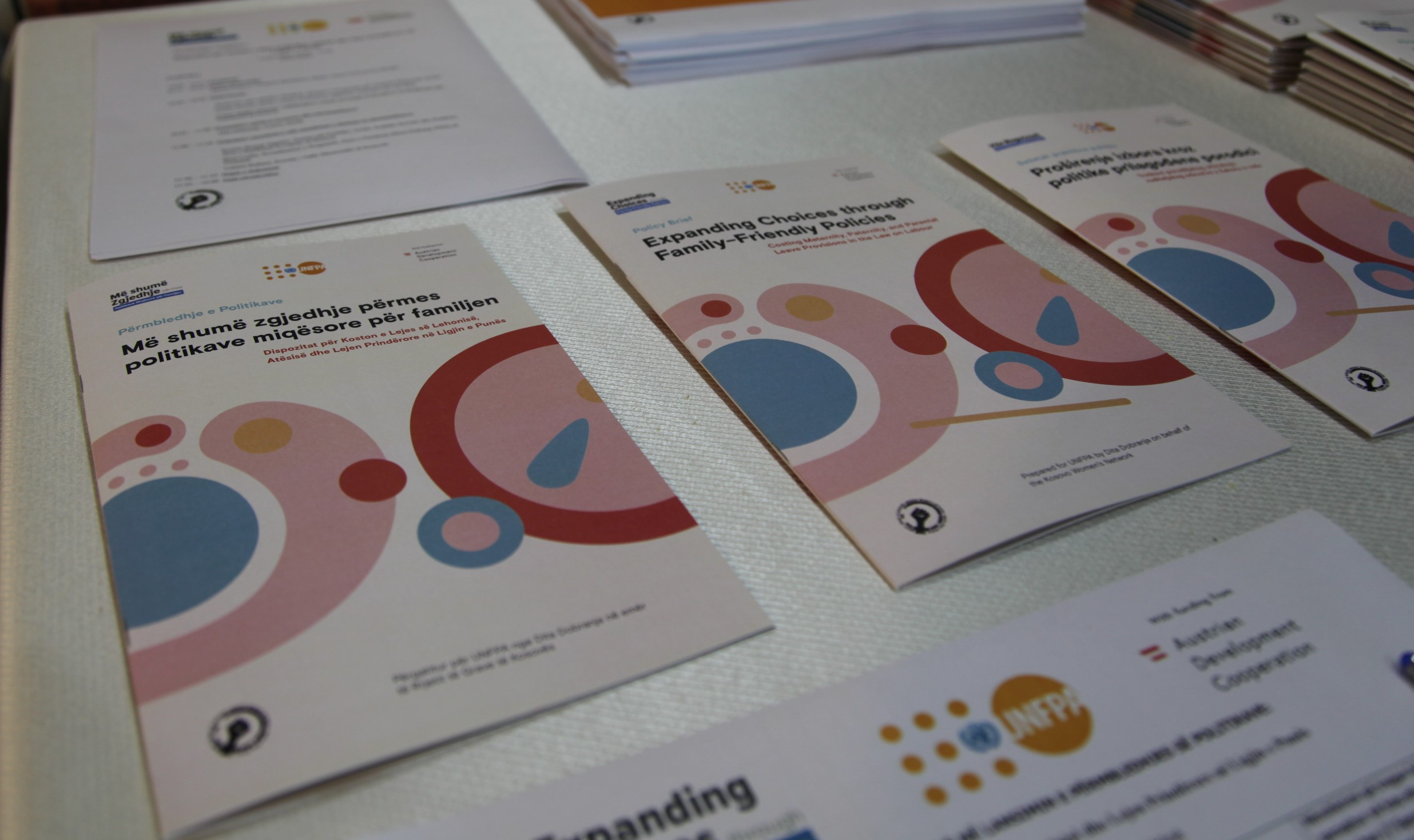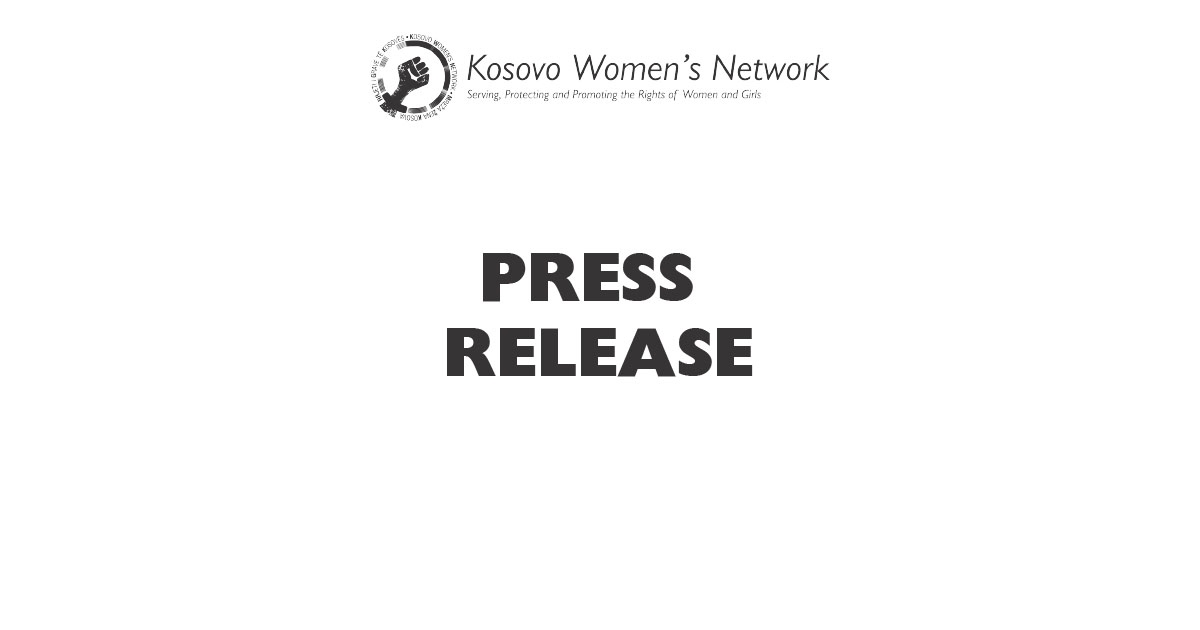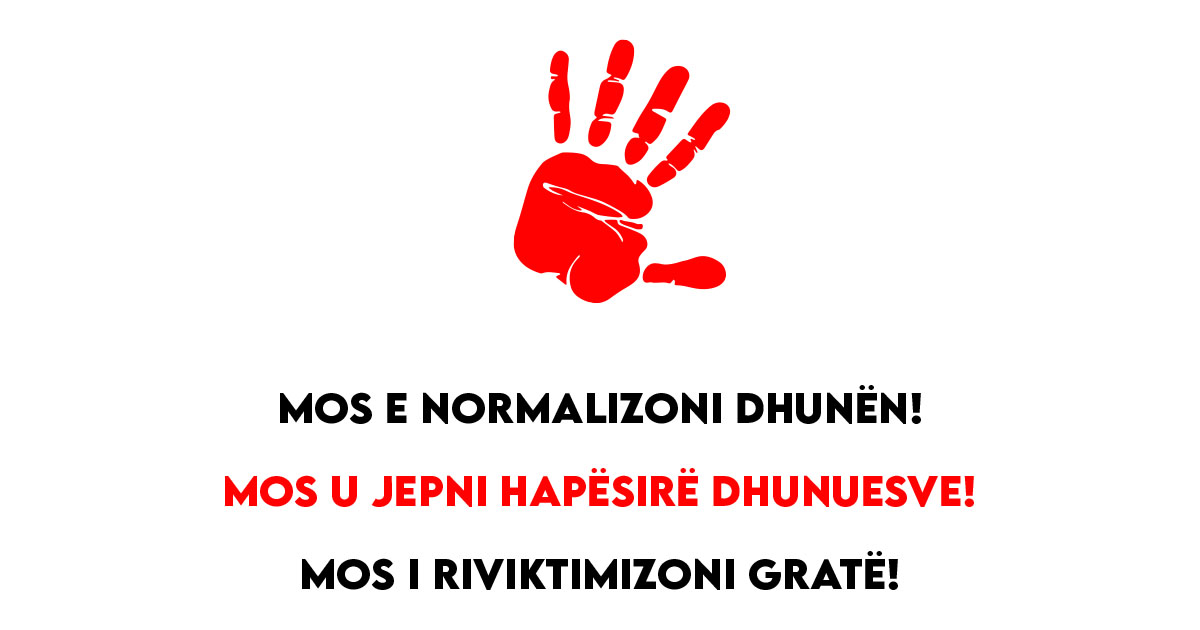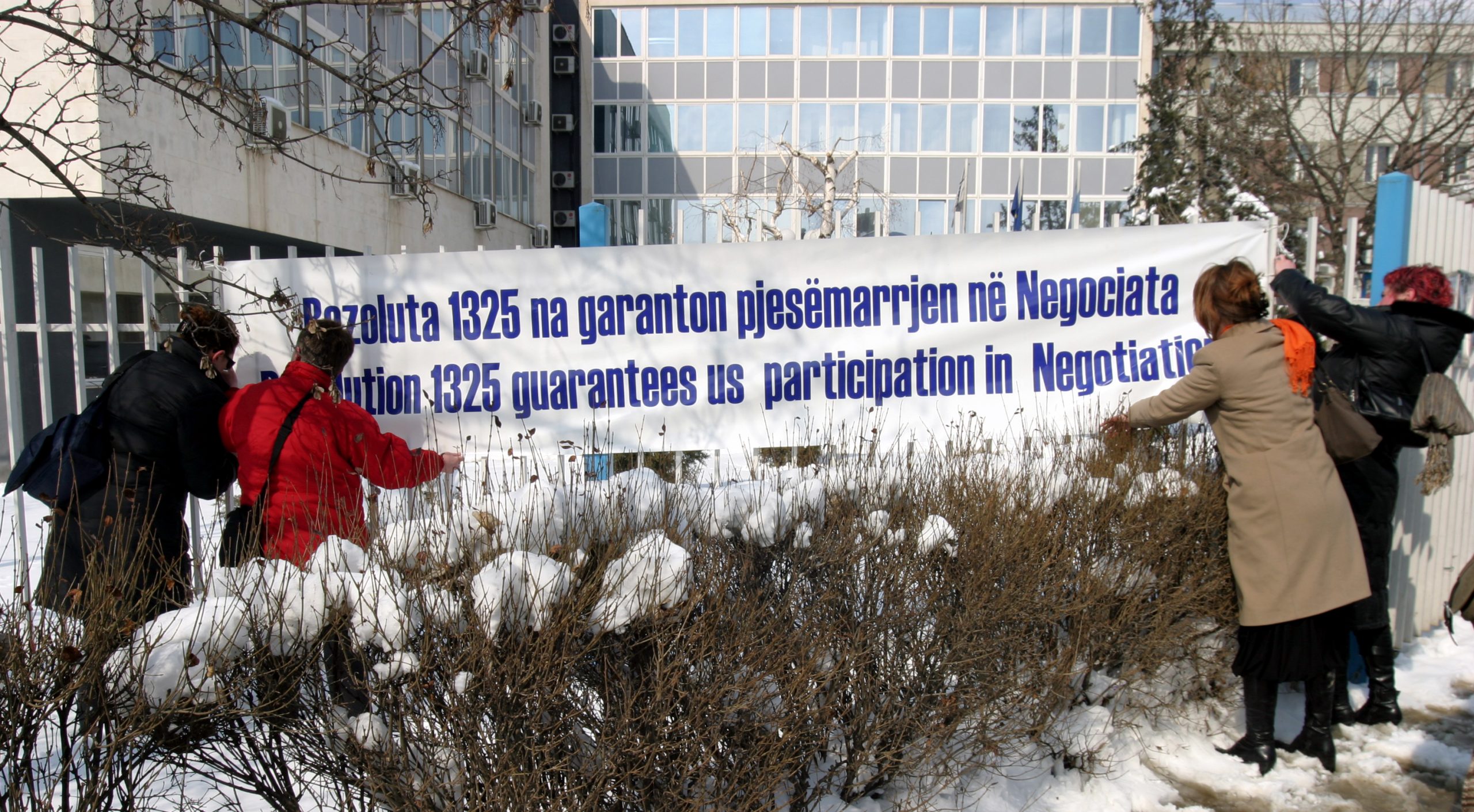Pristina, 07 October 2022
A new policy brief launched today examines how much proposed reforms to the Labour Law would cost the Kosovo Budget. The policy brief, “Costing Maternity, Paternity, and Parental Leave Provisions in the Law on Labour”, was prepared by economist Dita Dobranja for the Kosovo Women’s Network (KWN).
This brief assesses the costs to the Kosovo budget should Kosovo harmonise its Labour Law with the European Union (EU) Directive on Work-Life Balance (2019). This EU Directive has important implications for furthering gender equality in Kosovo, towards enabling women and men to spend quality time with their children.
The Women’s Economic Forum, a consortium of organisations, has proposed a model for the Labour Law that would better meet the needs of mothers, fathers, and children, while balancing compensation between the government and employers. The total estimated cost to the Budget of Kosovo would be around €11 million. The brief also proposes ways to pay for these changes.
The total duration of the proposed leave remains similar to the current one. The proposed changes to the Labour Law include that the first six months of leave be considered as Maternity Leave, offered to mothers.
During this period, fathers would be entitled to one month of Paternity Leave. Both maternity and paternity leave would be paid by the government at 70% of the salary.
The second six months would be offered as parental leave, to be used by mothers or fathers, of which three would be paid by the employer at 70% of salary; of these three, at least one month would be non-transferrable leave for fathers.
The last three months would be unpaid, as they are currently, and one of these months also would be for the father and non-transferrable.
This model distributes childcare more equally between parents and improves the current provisions that are contributing to discrimination in hiring, as shown by KWN’s prior research.
Moreover, they would contribute to men being able to spend more time with their children.
“The proposal model improves the currently unequal distribution of the financial burden between employers and the government [and] reduces discrimination against women”, explained Dita Dobranja.
“This would also contribute to increased revenues from personal income tax and contribute to formalization of employment”, she said.
Following the presentation of findings, a group of experts discussed the extent to which these recommendations could be implemented.
“We should also consider the cost on the society as a whole because half of the population are not active in the labour market”, said Syzana Bytyqi Jagxhiu, Official for Policy, Education, Social Policy and Employment at the EU Office in Kosovo. “The proposals given here are very justified proposals”, she concluded.
Lulzim Rafuna, Chair of the Chamber of Commerce of Kosovo, agreed that the analysis is very useful. “If we change the policies, it will be an extra motivation for businesses to hire women”, he said.
Besa Luzha, Program Coordinator from the Office of the Friedrich-Ebert-Stiftung (FES) in Pristina, said that civil society has been working towards amending the Labour Law for a very long time and that it is time that civil society’s evidence-based recommendations be taken into account.
“We said all that can be said from civil society. The ball is with the government now, and we are here to help every step of the process in order for the economic situation in Kosovo to be improved”, said Luzha.
The panellists agreed that businesses, civil society and international actors need to collaborate to strongly encourage the government to expedite the passage of the Labour Law and the accompanying budget reforms, recommended in this policy brief.
Sandra Horina, Head of the Austrian Development Agency in Kosovo said, “Now we need actions, and we encourage the government to take those actions [and] to undertake those reforms.”
KWN Executive Director Igballe Rogova emphasised that “it is time for us all to come together and push forward the approval of the Labour Law”.
As Visare Mujko Nimani from UNFPA observed in her opening remarks, “with these policies, we want to change the situation and women can freely pursue their career and at the same time dedicate their time to family.”
KWN wrote this report with financial support from the Austrian Development Agency, the operational unit of the Austrian Development Cooperation.
The Women’s Economic Forum is a coalition of civil society organizations: Riinvest Institute; Kosovo Women’s Network; Democracy for Development Institute (D4D); Kosovo Center for Gender Studies; Network of Roma, Ashkali and Egyptian Women’s Organizations of Kosovo; Kosovo – Women 4 Women; and the GAP Institute.
Please find the full report published on the KWN website, in Albanian, English and Serbian.





